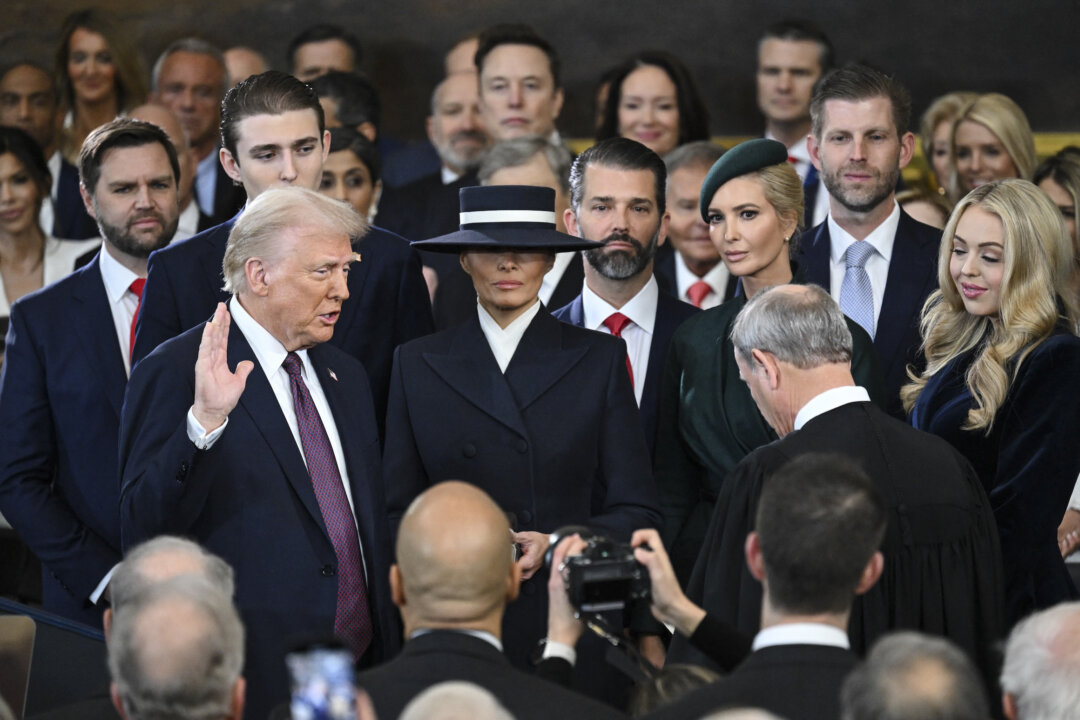‘From this day forward, our country will flourish and be respected again all over the world,’ the president said.
WASHINGTON—President Donald Trump wrapped up the greatest political comeback in modern American history on Jan. 20 by taking the oath of office at the Capitol in front of some of his most prominent supporters and opponents.
In the inaugural address, the president envisioned a bold agenda and announced a spree of executive actions to set it in motion the same day. He declared national emergencies regarding energy and the southern border, designated Mexican drug cartels as global terrorist groups, and declared that it is the policy of the United States that there are two genders.
The president recalled the unprecedented challenges he overcame during the campaign, including prosecutions by state and federal authorities, the raid of his home in Mar-a-Lago in Florida, and two attempts on his life.
“I was saved by God to make America great again,” he said.
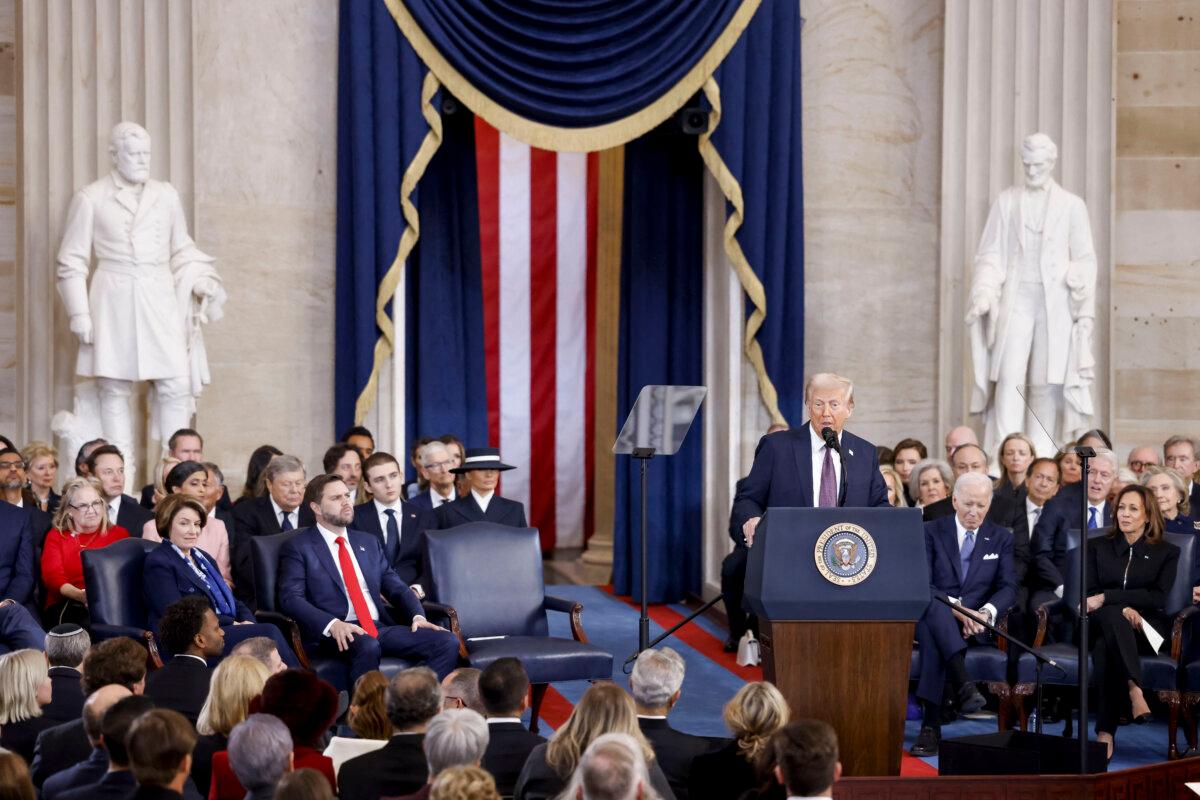
Long before the assassination attempts and the prosecutions, Trump was banned from Twitter, Facebook, and other platforms when he announced his run for office in November 2022. As an illustration of the acuteness of the reversal of his fortunes, the CEOs of the same companies that barred him from their social media sat alongside Trump’s family and Cabinet members as the president delivered his address.
In contrast to his first inauguration, Trump takes power having reshaped the Republican Party in the image of his America-first worldview. The comeback isn’t limited to politics. With Trump at the front line of the culture war in and out of office, conservatives appear to have turned the tide long-dominated by progressive values. Corporations and governments are increasingly shedding departments and policies under the ideological umbrella of diversity, equity, and inclusion (DEI) and environmental, social, and governance (ESG) principles. The two abbreviations have come to be associated with the encroachment of progressive politics into business and government.
“Many people thought it was impossible for me to stage such a historic political comeback. But as you see today, here I am,” Trump said. “The American people have spoken.”
In his address, Trump previewed some of the executive actions that he would roll out the same day.
Border policies topped the list, with the president announcing he’ll declare an emergency on the southern border, reinstate his remain-in-Mexico policy, end catch-and-release, deploy the military and National Guard to the border, designate drug cartels as terrorist organizations, and invoke the Alien Enemies Act of 1798 to remove cartel members from the United States. Incoming White House officials confirmed earlier in the day that Trump will be signing executive actions the same day to address each of the items.
The president also declared a national emergency on energy, describing it as a necessary countermeasure to what he called an intentional policy by the previous administration. The orders include a measure freeing up drilling in Alaska, ending the Biden administration’s so-called electric vehicle mandate, and filling up the strategic oil reserve. The president will end federal leasing to wind farms, withdraw again from the Paris Agreement on climate change, and end some of the Biden-era regulations on washing machines, lightbulbs, and dishwashers.
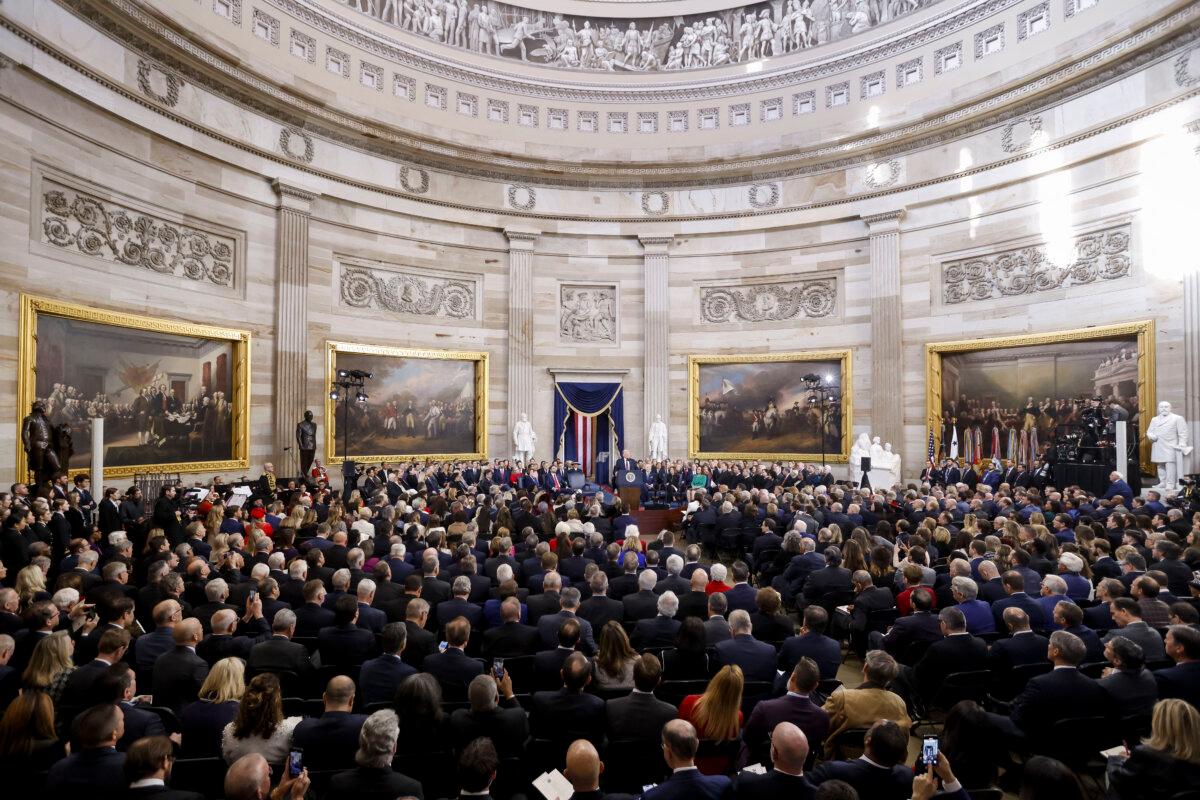
Trump signed the first nine executive actions immediately after delivering a speech at the Capital One Arena on the night of the inauguration. The orders included the rescission of 78 Biden-administration executive actions, requiring federal employees to show up to work in person, a freeze on hiring and regulations, and the withdrawal from the Paris climate accord. Trump also signed all-of-government directives to address inflation, prohibiting government from restricting speech, and prohibiting the weaponization of federal agencies against political opponents.
The president said he would act on some foreign policy positions that he unveiled during the transition period, including his intention to reclaim the Panama Canal, rename the Gulf of Mexico the Gulf of America, and establish the External Revenue Service to oversee the collection of tariffs from other nations.
Although Trump threatened to levy tariffs on Canada, Mexico, and China, those actions will come after the first day. Instead, he will sign a memorandum directing federal agencies to investigate unfair trade practices by foreign countries and recommend associated trade policies.
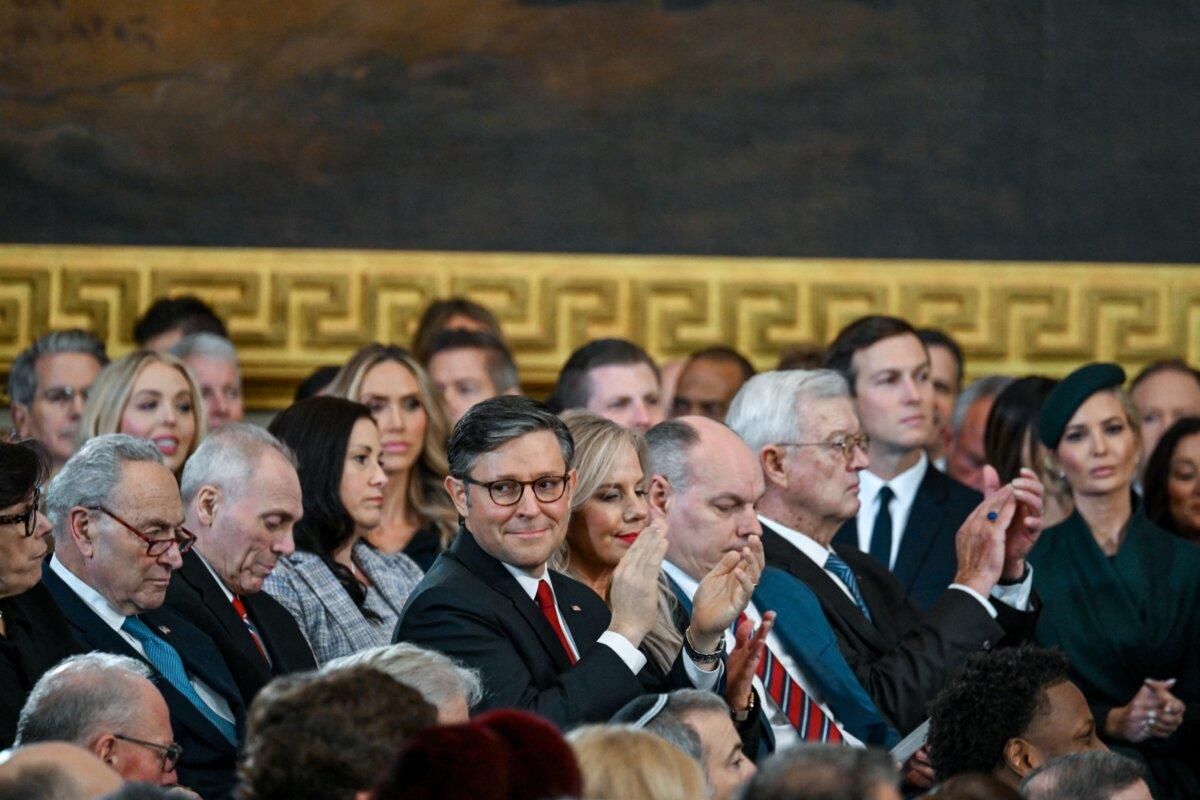
Describing the state of the nation in broader strokes, Trump returned to themes from the campaign trail, saying that the United States was in decline due to the policies of the preceding administration. The president positioned his speech as a turning point, opening and closing the address by saying that the “golden age” of America has begun.
“From this day forward, our country will flourish and be respected again all over the world. We will be the envy of every nation, and we will not allow ourselves to be taken advantage of any longer,” Trump said. “During every single day of the Trump administration, I will, very simply, put America first.”
One of Trump’s signature plans was challenged not long after he took the oath of office. Four groups filed lawsuits on Jan. 20 against the Department of Government Efficiency (DOGE), headed by Elon Musk. Earlier in the day, an administration official confirmed that Vivek Ramaswamy, who co-headed the DOGE effort, has resigned from that role.
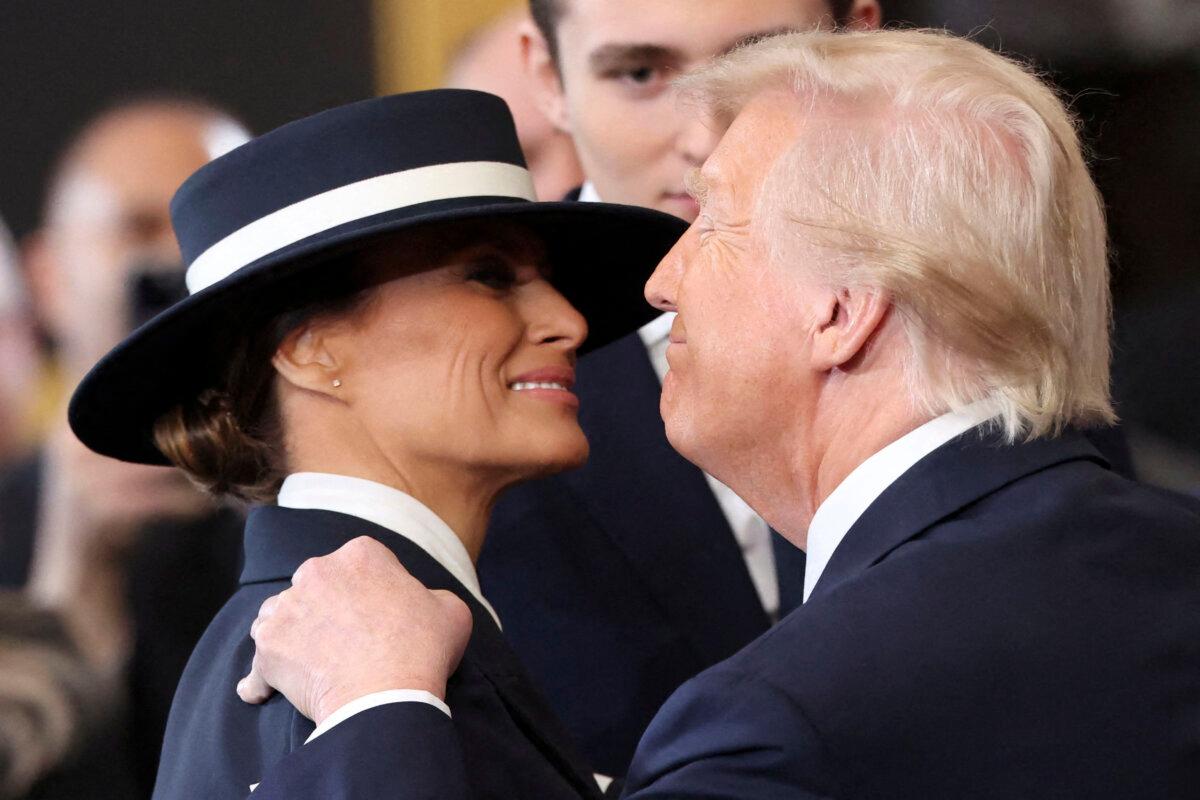
Some of the president’s directives were put into action even as he attended the ceremonies. U.S. Customs and Border Protection announced the termination of the CBP One app, which the Biden administration used to help 1,450 immigrants per day enter the country under humanitarian parole. At the Department of Defense, the portrait of former U.S. Army General and Chairman of the Joint Chiefs of Staff Mark Milley was removed from view.
Milley was among several people who received preemptive pardons from President Joe Biden in the final hours of his term. Biden also preemptively pardoned Dr. Anthony Fauci, former director of the National Institute of Allergy and Infectious Diseases, the members and witnesses of the Jan. 6 committee, and several members of the Biden family.
After the ceremonies at the Capitol, Trump and First Lady Melania Trump bid farewell to Biden and former First Lady Jill Biden. In his 2021 inaugural address, Biden set a course to root out the cultural and political forces championed by Trump. Four years later, Biden boarded a helicopter to depart the capital, with Trump’s approval ratings higher than when he left office on Jan. 20, 2021.
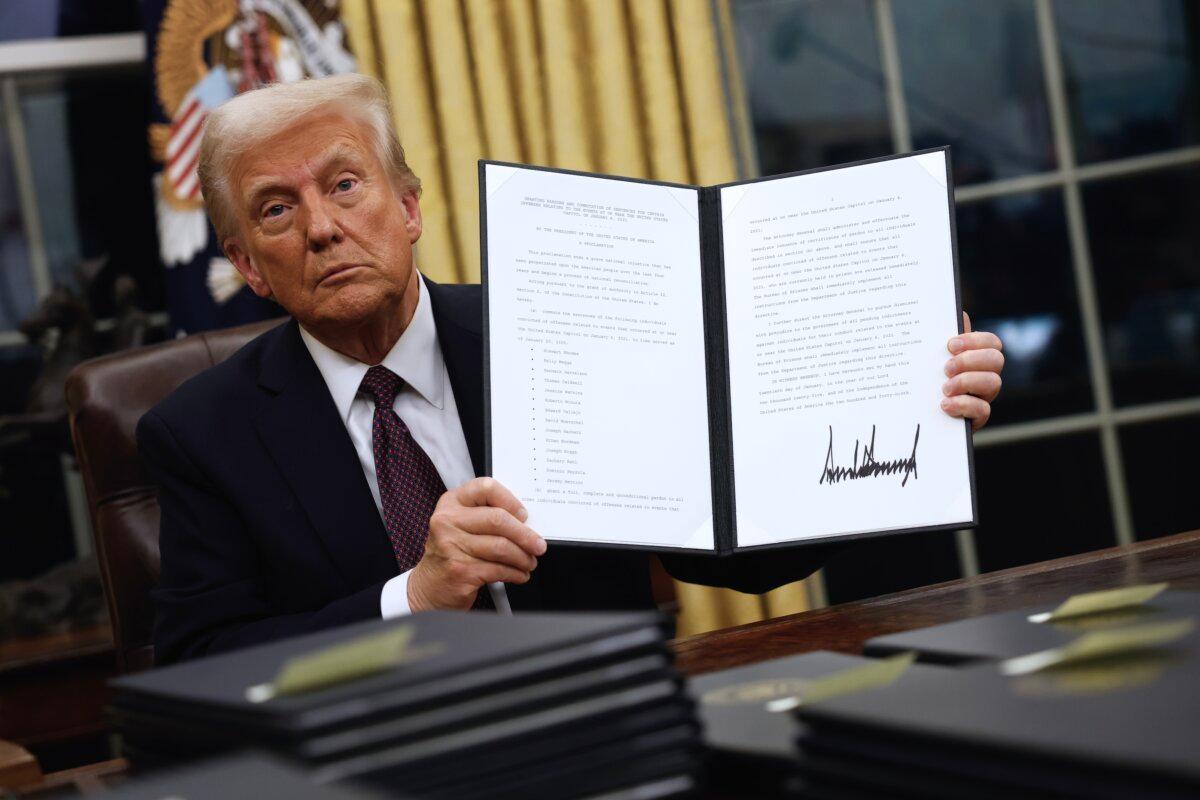
In a second speech, which did not appear on some of the inaugural schedules distributed to the press, Trump spoke to a different group of supporters who had watched the formal address on a screen at the Capitol. The president broached some of the more controversial topics he did not bring up in the formal address. The speech, which ran for some time, took place at the same time as Biden’s farewell address. As a result, the major TV networks didn’t air Biden’s final remarks.
The former president, speaking before an audience gathered at Joint Base Andrews, thanked his Cabinet and staff, calling them “the best damn team ever.”
“If you heard from the inaugural address today, we got more to do,” Biden said, crossing himself to laughter from the audience. “I know from many years of experience, there are ups and downs, but we have to stay with it.”
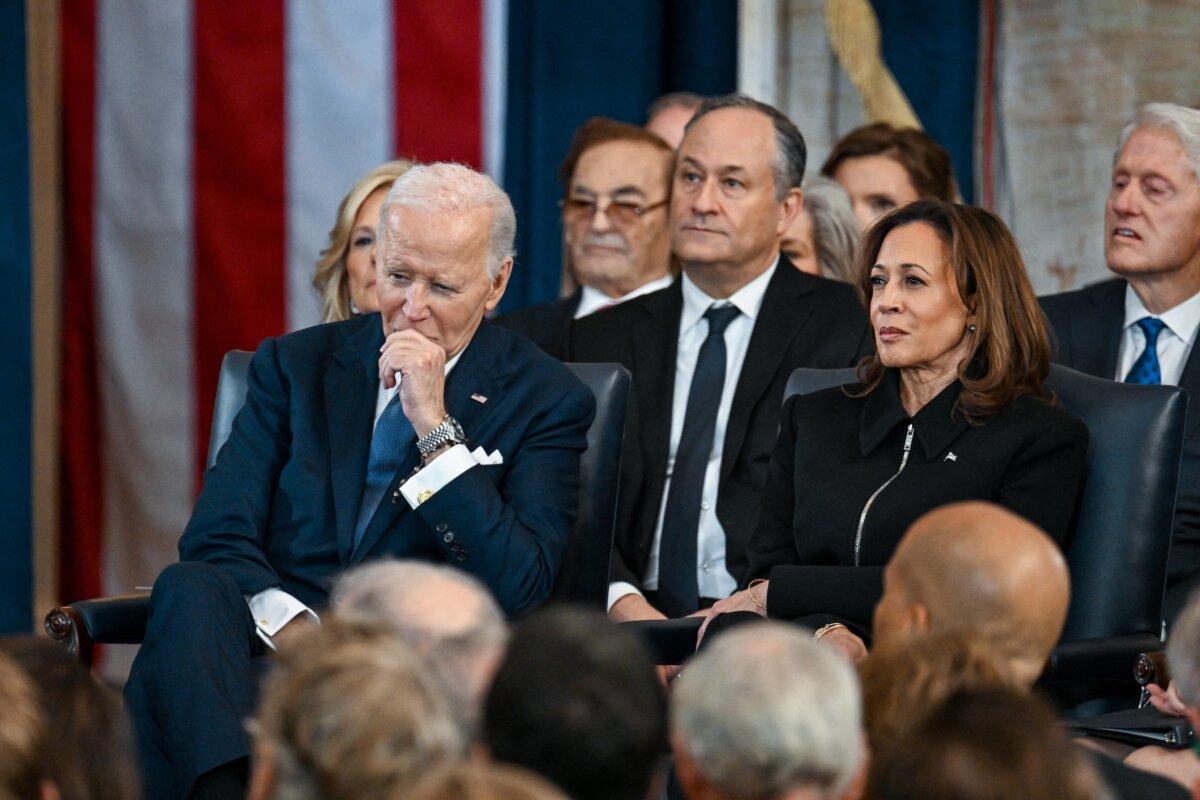
Trump’s second speech appeared to be impromptu, sprinkled with jokes, and more akin to the speeches at his campaign rallies. The president said the first lady persuaded him not to mention the pardoning of Jan. 6 prisoners during the inaugural address but added that an order on the matter is forthcoming and that people would be happy about it.
At a signing ceremony at the White House on Monday night, Trump granted full and unconditional pardons to all Jan. 6 prisoners with the exception of 14 people, who received commutations.
The inauguration ceremony was moved indoors days before the event because of the bitter cold, with Trump delivering his speech inside the Capitol and the inaugural parade moving to the Capital One Arena. Several speakers—including Musk, Virginia Gov. Glenn Youngkin, and FBI Director nominee Kash Patel—addressed the crowd at the arena before Trump arrived.
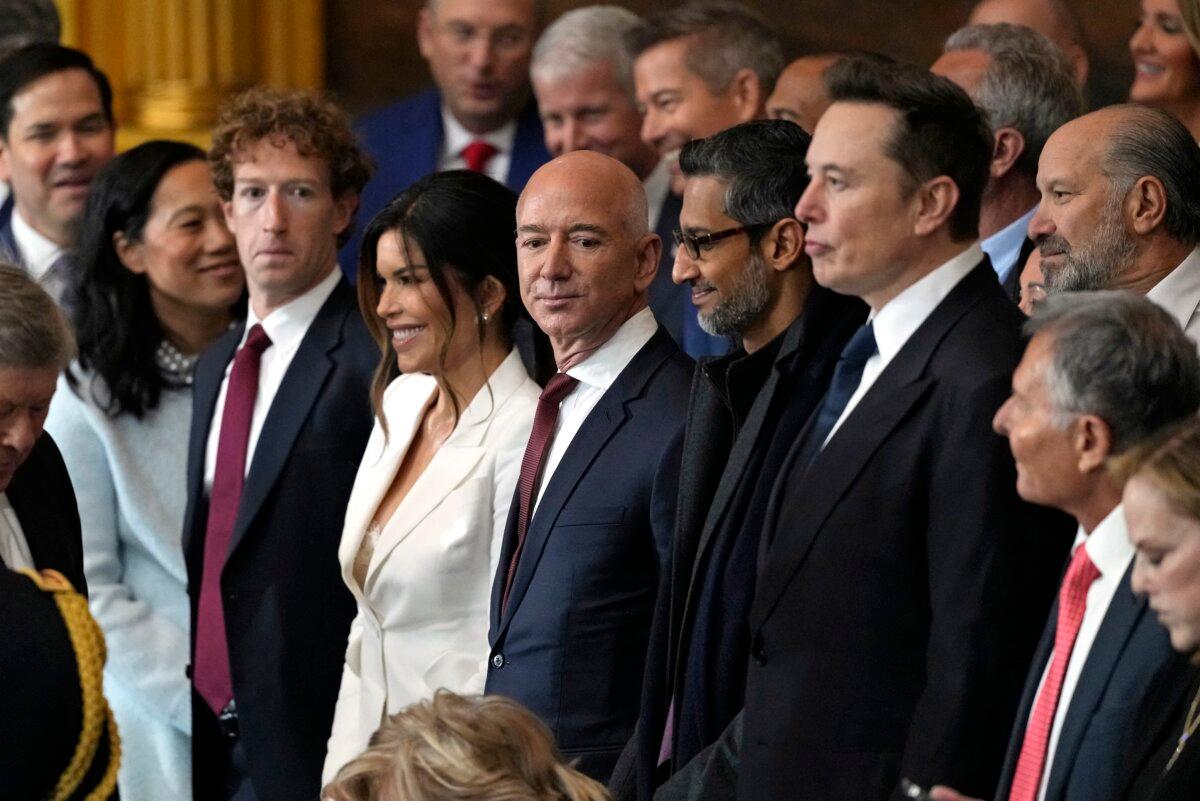
In his speech, Patel said the number of murders, rapes, and drug overdoses was unacceptable. Patel referred to fentanyl—the synthetic opioid responsible for the biggest portion of drug overdose deaths—as “CCP fentanyl,” using the acronym for the Chinese Communist Party. The bulk of the chemical precursors for fentanyl manufacturing originate in China.
“We are not prioritized to go after the threats that face this country and most of all that face our future generations,” Patel said. “But, thank God, we will be, starting right now.”
Musk spoke briefly about his excitement for what’s to come.
“This was no ordinary victory,” Musk said. “This was a fork in the road of human civilization.”
Congratulations poured in from world leaders, including those of Russia, Ukraine, Canada, the UK, and the European Union. Chinese communist regime leader Xi Jinping—who was invited to the inauguration but sent an envoy in his place—did not send a greeting.

